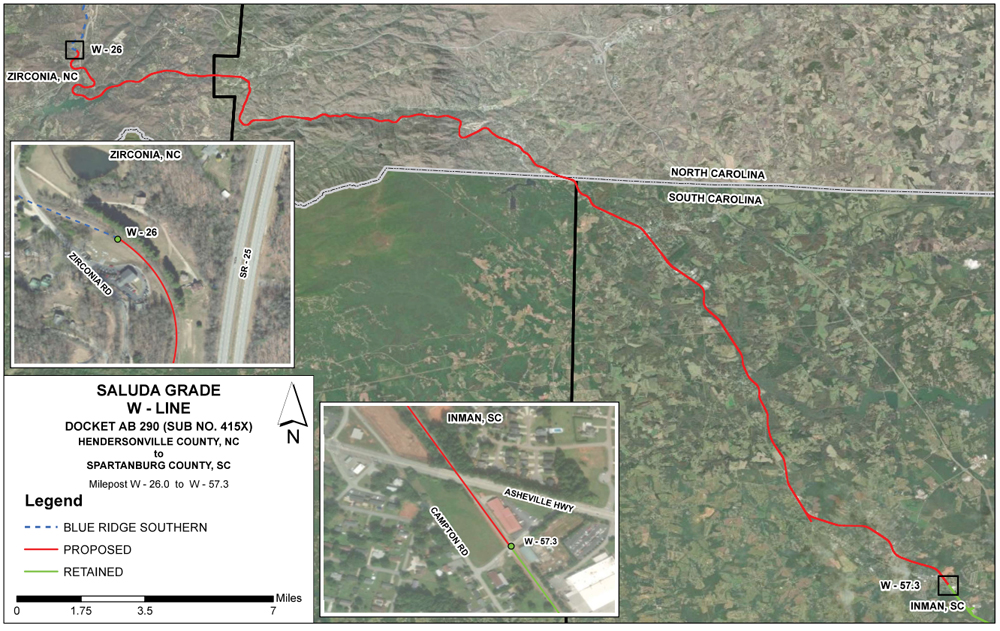PALESTINE, Texas — Government and Union Pacific officials remain at odds after a Monday meeting over efforts to retain railroad jobs in Palestine, increasing the likelihood a UP suit against the city will end up in court.
The railroad sued the central Texas community late last year, seeking to end a contract dating to 1872 that guarantees a certain number of jobs in Palestine [see “UP sues to end employment provision in Texas town,” Trains News Wire, Dec. 2, 2019].
The Palestine Herald-Press reports that UP officials met Monday with Palestine Mayor Steve Presley and City Manager Leslie Cloer, along with U.S. Rep. Lance Gooden, state Reps. Cody Harris and Robert Nichols, and Anderson County Judge Robert Johnston, who hosted the meeting. No further meetings are planned, however, and Presley told the paper the meeting produced no new agreement or information.
UP spokeswoman Raquel Espinoza told the paper the railroad appreciated the opportunity to meet “to discuss potential pathways to workable solutions. However, we have to have the ability to make viable decisions that allow us to modernize.”
Harris told the newspaper the case is “another example of rural America being bullied and cast to the wayside in exchange for higher stock prices. … A contract is a contract; Union Pacific should stick to their word.”















Mr. Landey, although I am not a lawyer, I have dealt with numerous joint facility contracts that are still in use today. And you can tell they’re old because many in use are handwritten since they were made before typewriters came into general use. Usually what you see in those contracts is that they can be assigned to a company’s successor. Take one example – the crossing of NS by the B&OCT at State Line, Indiana. The contract to cover the crossing was made between the parties of the Chicago & Calumet Terminal (C&CT) and the Nickel Plate. C&CT went bankrupt and was succeed by the Chicago Terminal Transfer (CTT) which also went bankrupt and was bought by the B&O who reorganized it as the B&OCT. The Agreement covering the diamond crossing of the NKP by the C&CT is still in effect and unchanged and still handwritten. There was another one in Chicago that I worked on that involved a predecessor of METRA and the NYC with an agreement from 1851 that was used to establish each parties’ rights. Again, I’m not a lawyer, but I think bankruptcies and reorganizations and mergers only affect the debt and stock ownership of the railroad, not the thousands of other agreements made. If that wasn’t the case, just with the joint facility agreements, there sure are a bunch that need to be changed. Of course, I don’t have the UP agreement in front of me nor do I know the contract law of Texas, but there may be a provision in it to assign the agreement to the parties’ successors. Other than the debt and stock changes, I think the city may have a good case that no matter the changes in the corporation through the years, the original other contracted obligations continue. What might affect such an old agreement is if there were no term limits, or if there were, it didn’t get renewed. With a railroad agreement, the usual practice was, and is, to put a term limit in it. That is why you see those agreements from the 1800’s made for 99 years, or in one case I remember, for 999 years. With no term limits, a court might not be willing to accept that the contract is of infinite length. Although I have worked with a lot of old railroad contracts, I’m certainly not a contract lawyer and maybe somebody that is up on contract law may contradict me. However, what I’m saying is based on that experience of working with those old joint facility contracts and how the railroad had to comply with them.
Calanders. Darn spell check
Now I know why U.P. can’t afford to send out calanders
Everyone hates lawyers … until …
The above comments are generic in nature and do not form the basis for an attorney/client relationship. They do not constitute legal advice. I am not your attorney. Lions six, Christians zero.
railroads sign contracts contracts in invisible ink, get what they want from the unions, customers and the government, as soon as the signatures dry, agreements are violated,
So at some point between 1872 and the modern era, did IGN or MoPac ever go bankrupt? Just about every railroad did considering two Depressions, several Recessions, and all manner of misfortune or mismanagement. Pardon me (ANNA HARDING) for practicing bankruptcy law on a Professional Engineer license, but assuming one or more bankruptcies along the way, the corporation is dissolved and its obligations discharged or restructured. Somehow I can’t imagine this rinky-dink contract being carried forward into a new corporation.
Note that even the mighty UPRR (at that point in time nowhere near Texas) went bankrupt in the 1890’s. If UPRR went bankrupt I can’t imagine that IGN or MoPac did not (though I don’t actually know).
This is like the Slavery Reparations crowd targeting southern railroads and insurance companies – because those are the only corporations back then still operating now. Never mind that with bankruptcies in between the corporations back then technically don’t still exist. Even if the corporate name continues forward so as to maintain the continuity of operation.
The requirement that Union Pacific maintain 0.52% of its work force in Palestine does not date back to 1872. It is of a later date than 1914, when Anderson County successfully sued to force a predecessor railroad, International and Great Northern Railway, to forever keep its general offices, machine shop, and round houses in Palestine. https://books.google.com/books?id=2os7AAAAIAAJ&pg=PA322&lpg=PA322&dq=contract+requirement+to+keep+railroad+jobs+in+palestine+tx&source=bl&ots=cgGPVPK-u_&sig=ACfU3U0Kc2IkqA3yBSD4CXeXFaJAA_tSWg&hl=en&sa=X&ved=2ahUKEwiJrJD9ppjnAhVqmeAKHViWCxo4ChDoATACegQIBxAB#v=onepage&q=contract%20requirement%20to%20keep%20railroad%20jobs%20in%20palestine%20tx&f=false
Contracts are meant to be renegotiated in due time, and this one has outlived it’s usefulness.
Hand the city some cash and move on.